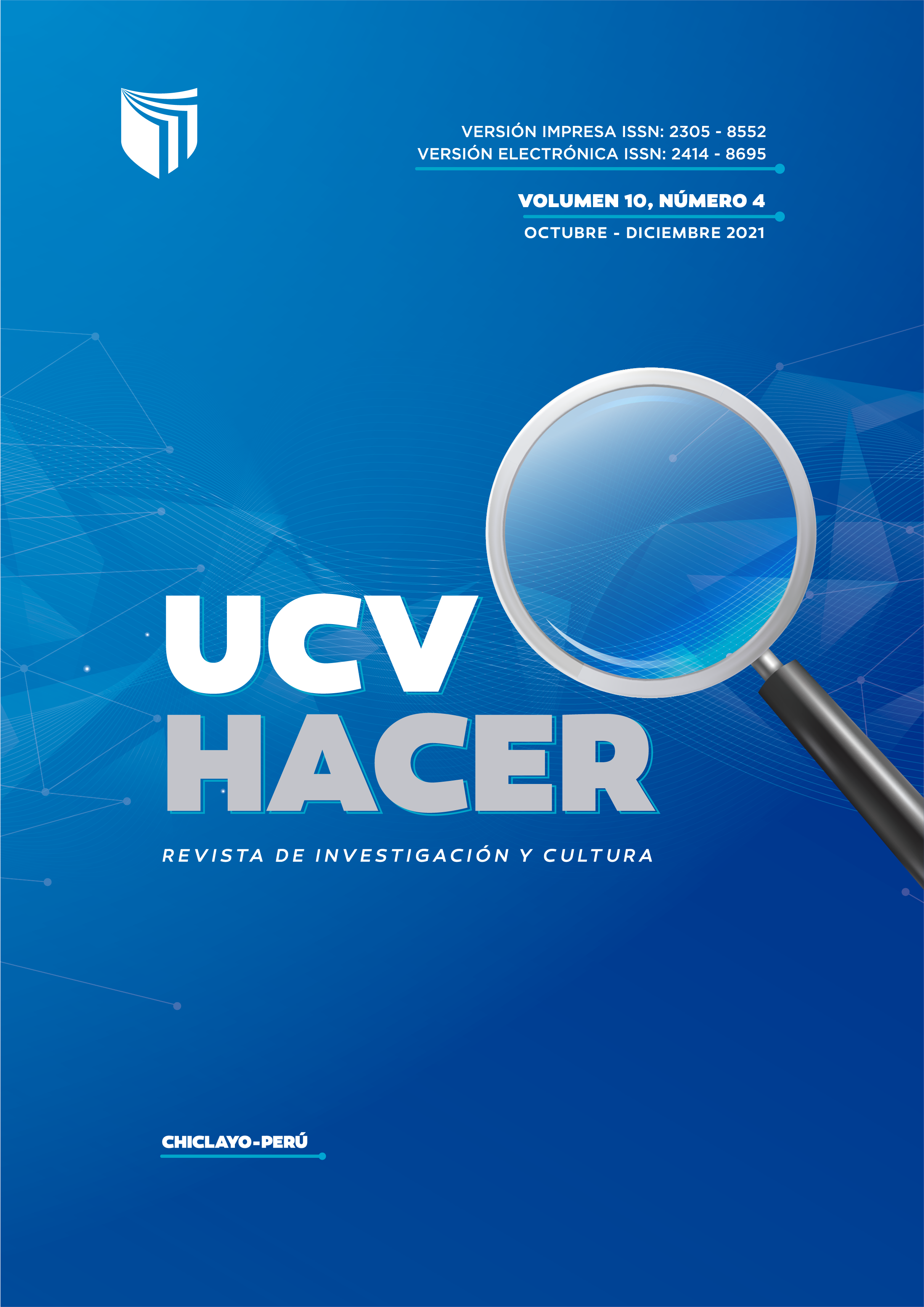Leader woman 21st century and post-conflict
DOI:
https://doi.org/10.18050/RevUCVHACER.v10n4a7Keywords:
Mujer, Lideresa, Derechos humanos, Dignidad humanaAbstract
The armed conflict in Colombia left great lessons and meanings regarding the vulnerability of women and the violations of their Human Rights caused by ignorance and gender inequality in all Latin American countries (Segato, 2016). Being a missing assertive education for the post-conflict women leaders (High Commissioner for Peace, 2016). The role that women have to acquire and assume within the Transitional Justice processes as historical archetypes allow the categorization of inequalities and favor the Reconciliation processes in Colombia, becoming a light in the advances of the investigations in different parts of the world under the recognition of men and women under freedom and peace (Díaz, 2018). The leading woman works to transform her role and thus reduce inequality (Céspedes, 2014), with all social and cultural media integrated in the performance of many works and actions (Grisales, 2018), which this investigative work has a qualitative approach based on inductive analysis that proposes a view from leadership and the transformation of roles and the way of assuming cultural and social movements from the post-conflict; a social icon in Latin America focused on transforming living conditions and the construction of peace (Lemaitre, 2015), under strength, integrity, courage and desire and change the negative episodes in
participation against the inequality present in the 21st century ( Indepaz, (SF)).
Keywords: Woman, leader, human rights, human dignity.
Downloads
Published
Versions
- 2021-12-12 (2)
- 2021-12-27 (1)
How to Cite
Issue
Section
License
Copyright (c) 2021 UCV Hacer

This work is licensed under a Creative Commons Attribution-NonCommercial-ShareAlike 4.0 International License.










